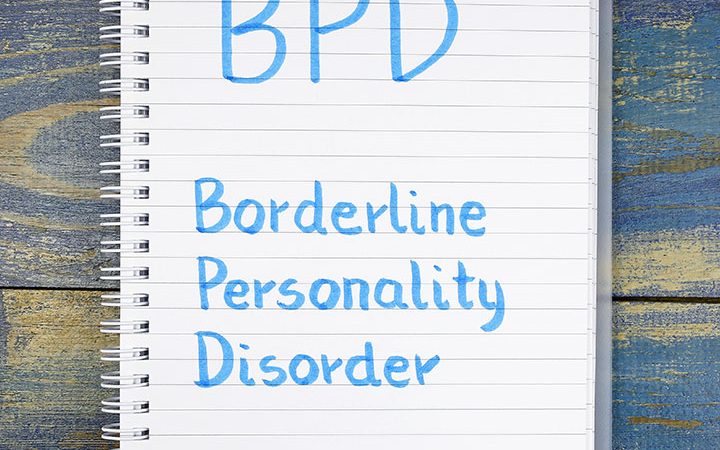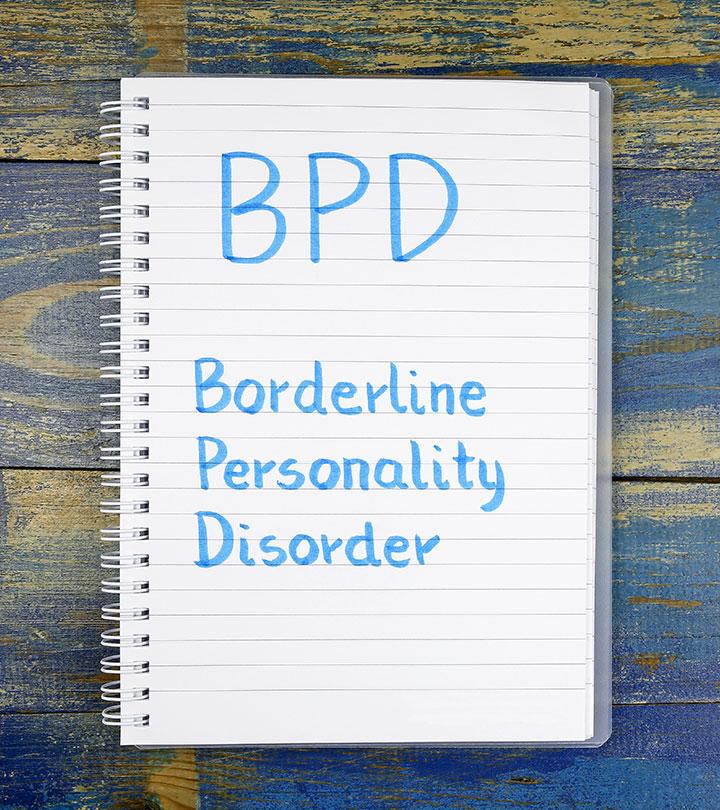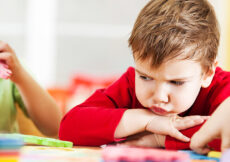Borderline personality disorder (BPD) is a mental health condition characterized by extreme emotions, impulsive behavior, severe problems with self-esteem, and challenges in forming long, stable, and strong relationships with others (1).
The signs and symptoms of BPD most often appear in childhood, but the problems begin to arise in teenage or adulthood. Read on as we discuss the causes, symptoms, diagnosis, and treatment of BPD in children.
Causes And Risk Factors Of BPD
The exact cause of BPD is unknown. Problems with chemicals in the brain responsible for mood regulation might trigger the development of BPD (1).
The following factors may put a child at a higher risk of developing BPD (2).
- It may run in the family.
- It is more common in children with a natural tendency to get upset easily.
- Growing in a household where children do not receive enough support and training to handle their big emotions.
- Children who might have experienced childhood trauma such as physical, emotional, or sexual abuse, neglect, or loss of a parent.
Symptoms Of BPD
Some mood swings and behavior changes are normal and happen with everyone. But for people with BPD, these problems are severe, repetitive, and may cause a disturbance with routine life. Some common symptoms of BPD include (1) (2).
- Intense emotions and mood swings
- Substance use
- Binge eating
- Spending a lot of money
- Risky sexual behavior
- Rash driving
- Low self-worth
- A severe feeling of being left alone
- Aggressive behavior
- May judge other people as only ‘good’ or ‘bad’ and no in-between. May also shift from one viewpoint to the other suddenly.
The following symptoms may also be seen-
- Feeling empty inside
- Anger issues
- Violent tantrums
- Self-harm
- Suicidal thoughts or attempts
- Episodes of paranoia
- Episodes of psychosis (inability to distinguish between real and imaginary)
- Brief but intense episodes of anxiety and depression
Complications Of BPD
People with BPD may also have other mental health disorders such as depression, bipolar disorder, attention-deficit hyperactivity disorder (ADHD), substance use disorder, or eating disorders. Children with BPD may also have suicidal tendencies (2) (3).
Diagnosis Of BPD In Children
There are no specific blood tests or brain scans to diagnose bipolar disorder in children. However, the healthcare provider may advise these tests to rule out other conditions. A pediatrician and child psychologist will thoroughly analyze your child’s symptoms to arrive at a BPD diagnosis. To be diagnosed with BPD, the child must exhibit at least five of the symptoms mentioned above before reaching adolescence (2).
Treatment Of BPD In Children
The treatment of BPD can be a little difficult, and it is not uncommon for the symptoms to return. Moreover, children with BPD may also have disturbed relationships with their counselors and doctors. However, the treatment is long and eventually helps reduce the symptoms, avoid harmful behaviors, and help your children manage their emotions better. The treatment may include one or a combination of the following (1).
A counselor plays a vital role in treating BPD in children. However, children with BPD may like their counselor one day and may hate them the other day. The children may develop more hatred for them, especially when the counselor asks them to change their behavior. A counselor specializing in dialectical behavior therapy (DBT) can be instrumental in treating this condition.
Antidepressants, anti-anxiety medicines, mood stabilizers, and antipsychotics in combination with counseling and therapy can help treat BPD in children.
Sufficient sleep, healthy diet, regular exercise, and abstinence from drugs and alcohol can help reduce stress and anxiety. It reduces the frequency and intensity of symptoms of BPD in children.
Ways That Help A Child Cope With BPD
The following tips may help you support your child with BPD.
- Be patient and non-judgmental.
- Promote a calm environment at home.
- Design strategies to control impulsivity.
- Help your child develop better interpersonal skills.
- Encourage your child to indulge in activities such as meditation, deep breathing, yoga, and relaxation techniques. You can do it with your child as a team.
- Exhibit and demonstrate love and support.
- Educate yourself about BPD.
- Lower your expectations and set realistic goals.
- Validate their emotions.
- Speak to the child honestly.
- It is difficult, but try not to lose your calm.
- Talk to them in clear, straightforward language. Also, be mindful of your nonverbal communication such as gestures, facial expressions, body language, etc.
- Be alert and aware of any signs of suicidal behavior.
- Make a daily schedule and stick to it.
- Encourage a healthy lifestyle and diet.
- Be consistent with their appointments with the therapist.
- Ensure regular consumption of the prescribed medicines and no dose is missed.
- The school, teachers, coaches, and other caregivers should be informed and kept in the loop about the treatment. All of you should be on the same page regarding the child’s care.
- Talk about the child’s condition to their siblings and explain how they can help in empowering the child.
- If there are any other accompanying medical conditions such as a mental disorder, cardiac conditions, and learning disabilities, ensure they are monitored well and take all their medications properly.
- Keep an eye on any new and sudden changes in their dressing style, behavior, choice of friends, routine, etc.
The treatment of BPD is a lengthy and time-consuming process. Patience and perseverance are required to get results of the treatment of BPD. Since the diagnosis of BPD in your child can be overwhelming, seek help from local or online support groups. Consult your healthcare professional if you notice any abnormal, especially suicidal thoughts or behavior in your children.
References:
MomJunction’s articles are written after analyzing the research works of expert authors and institutions. Our references consist of resources established by authorities in their respective fields. You can learn more about the authenticity of the information we present in our editorial policy.
Recommended Articles
The following two tabs change content below.




































